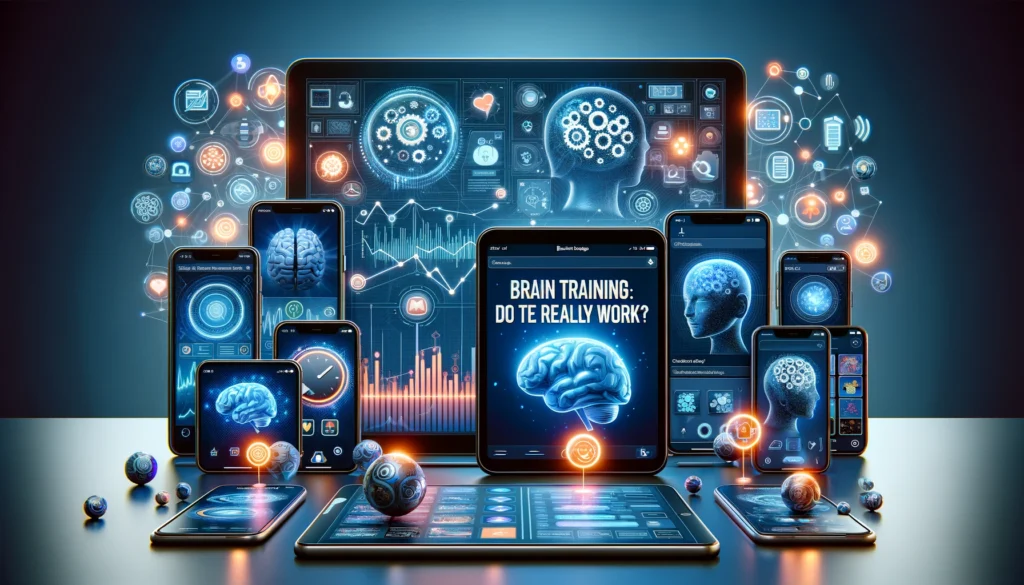In the digital age, where technology permeates every aspect of life, brain training apps have emerged as popular tools for enhancing cognitive abilities. These apps, which offer a range of games and exercises designed to improve memory, problem-solving skills, and mental agility, have gained widespread attention. But the question remains: do these brain training apps really work? This blog post dives into the efficacy of these apps and what science has to say about them.
What Are Brain Training Apps?
Brain training apps like Lumosity, Peak, and Elevate offer a series of games and tasks intended to exercise various cognitive functions. They are designed based on the principles of neuroplasticity – the brain’s ability to form and reorganize synaptic connections, especially in response to learning or experience.
The Science Behind Brain Training
The effectiveness of brain training apps has been a subject of debate among neuroscientists and psychologists. Some studies suggest that these apps can improve cognitive functions, but others argue that the benefits are limited. For instance, a study in the Journal of Neuroscience found improvements in tasks specifically trained by the apps, but limited transfer to general cognitive abilities.
Potential Benefits of Brain Training Apps
While the extent of their effectiveness is still being studied, some potential benefits of brain training apps include:
- Improved Specific Skills: Users may see improvements in the specific tasks or types of puzzles practiced in the app.
- Increased Mental Engagement: These apps can encourage users to dedicate time to cognitively demanding activities.
- Accessibility and Convenience: They offer an easy and accessible way to engage in mental exercises.
Limitations and Criticisms
Critics of brain training apps point out several limitations:
- Limited Transfer to General Intelligence: Improvements in game performance may not necessarily translate to overall brain function improvements.
- Varied Scientific Backing: Not all apps are created based on sound scientific principles.
- Overstated Claims: Some apps may overstate their benefits, leading to unrealistic expectations.
Best Practices for Using Brain Training Apps
If you choose to use brain training apps, consider the following tips:
- Supplement, Don’t Replace: Use these apps as a supplement to other mentally stimulating activities, not as a standalone solution.
- Set Realistic Expectations: Understand that these apps are tools for practice and not magic solutions for cognitive enhancement.
- Diversify Your Brain Activities: Engage in various activities like reading, puzzles, learning new skills, and physical exercise to stimulate your brain in different ways.
Conclusion
Brain training apps can be a fun and engaging way to spend time, and they might offer some benefits in specific cognitive task performances. However, it’s essential to have realistic expectations about their efficacy and to use them as part of a broader approach to cognitive health that includes physical exercise, social interaction, and other forms of mental stimulation.








